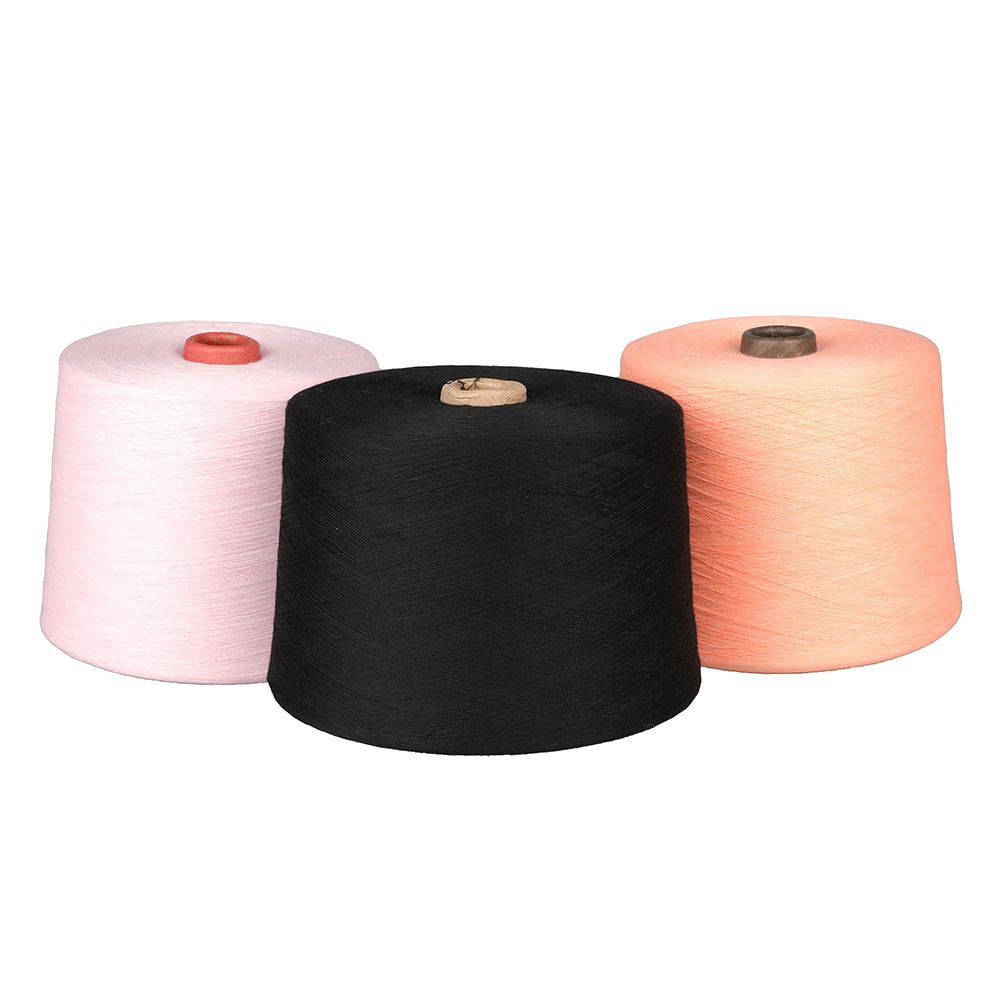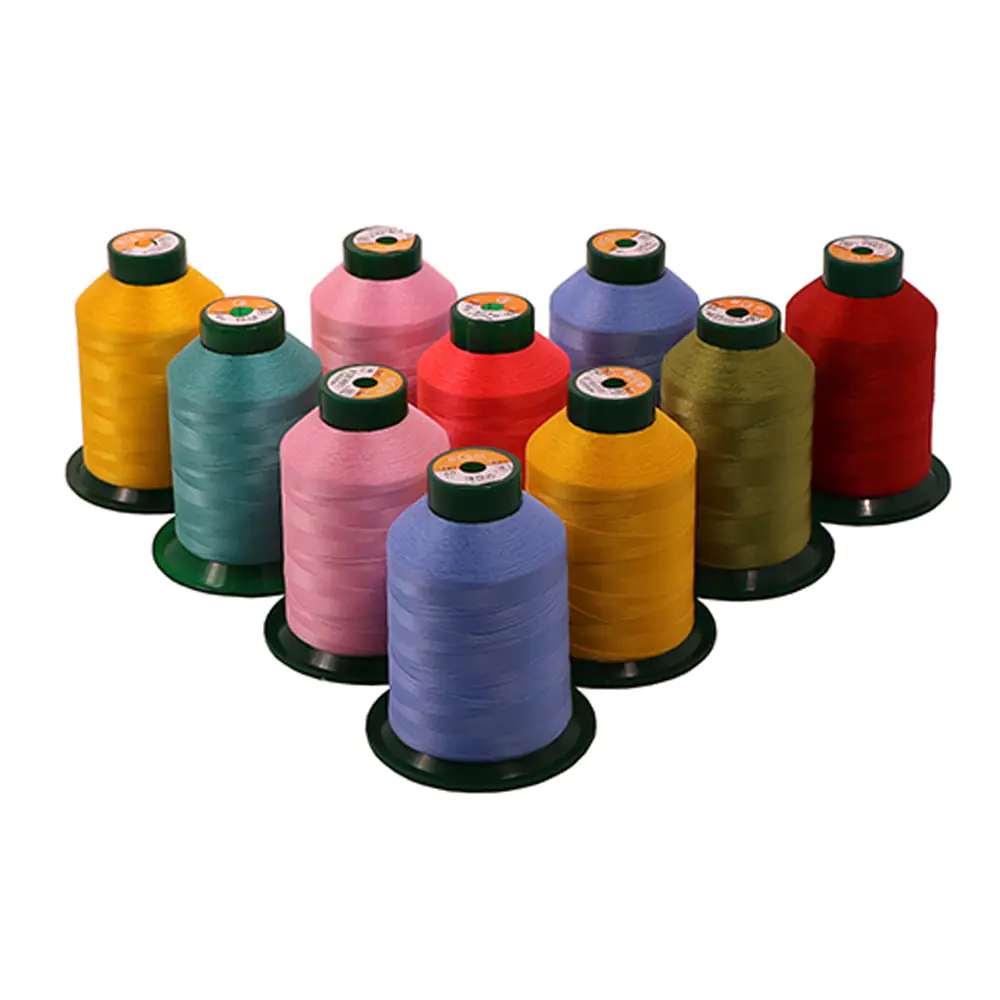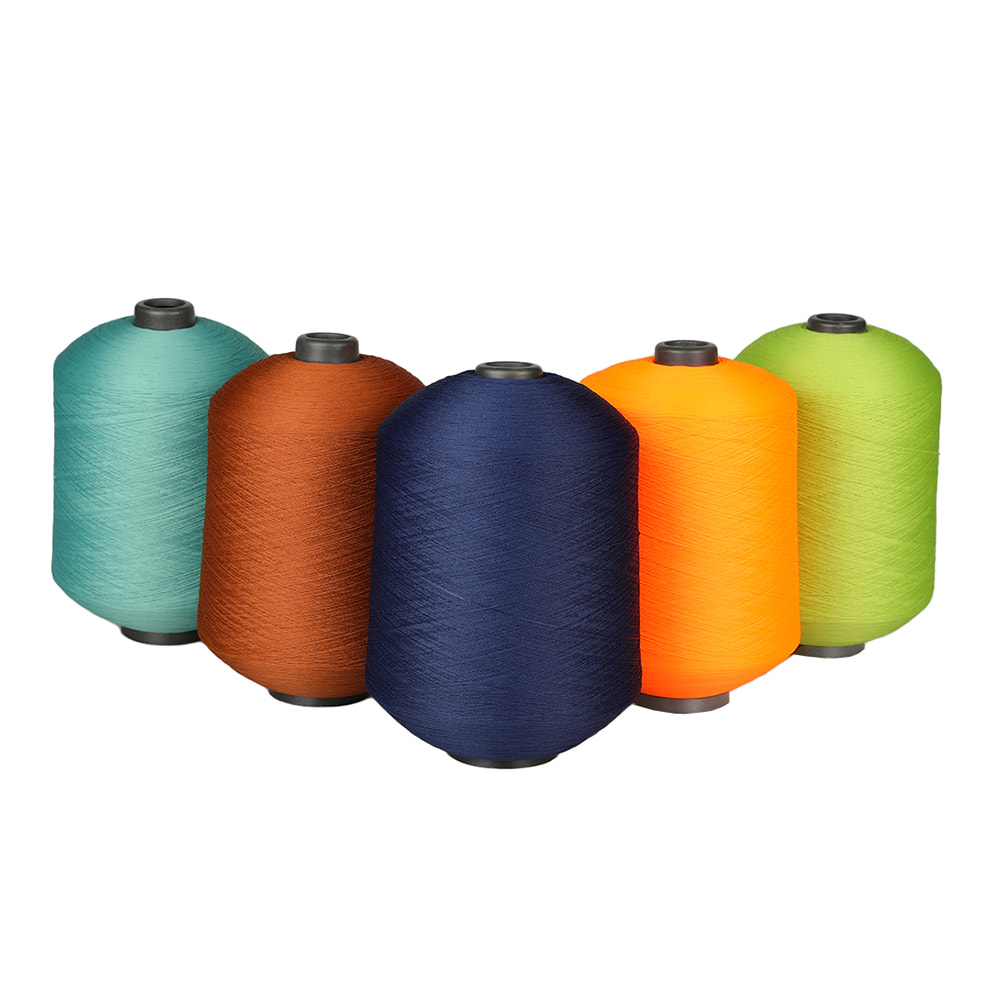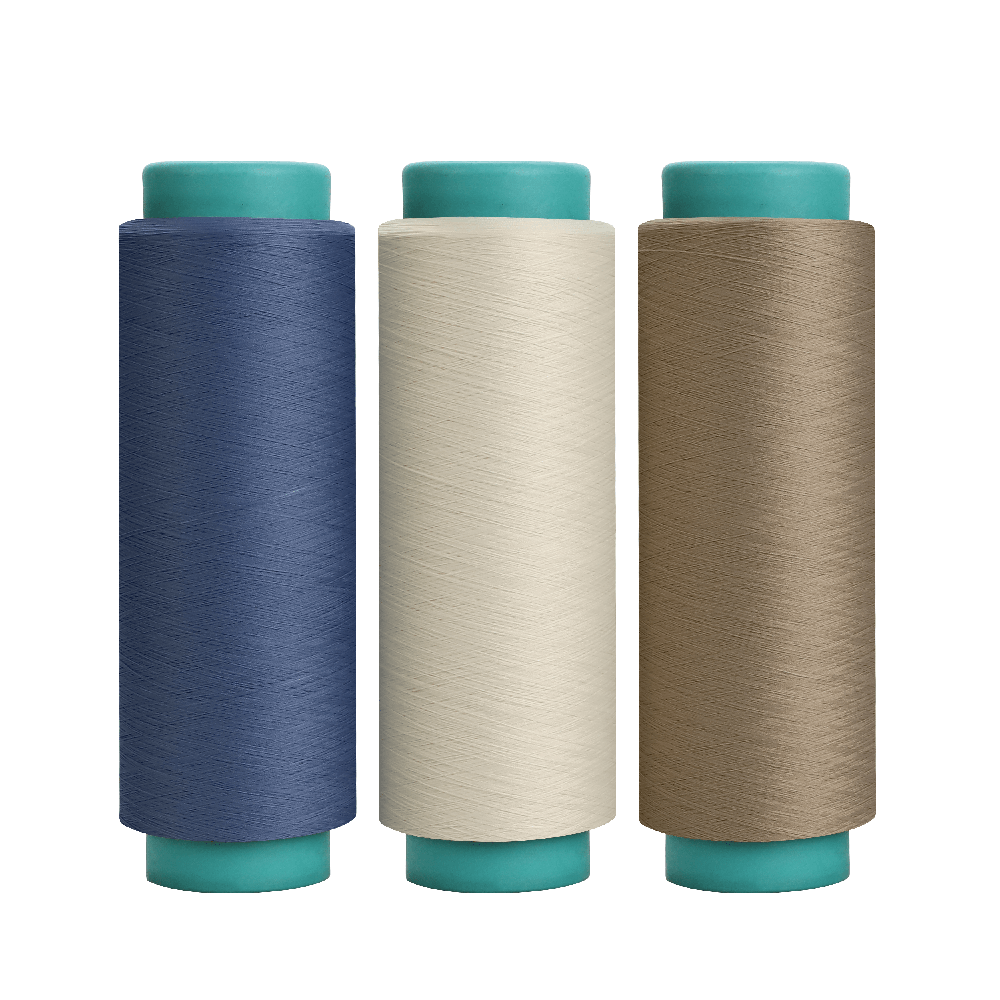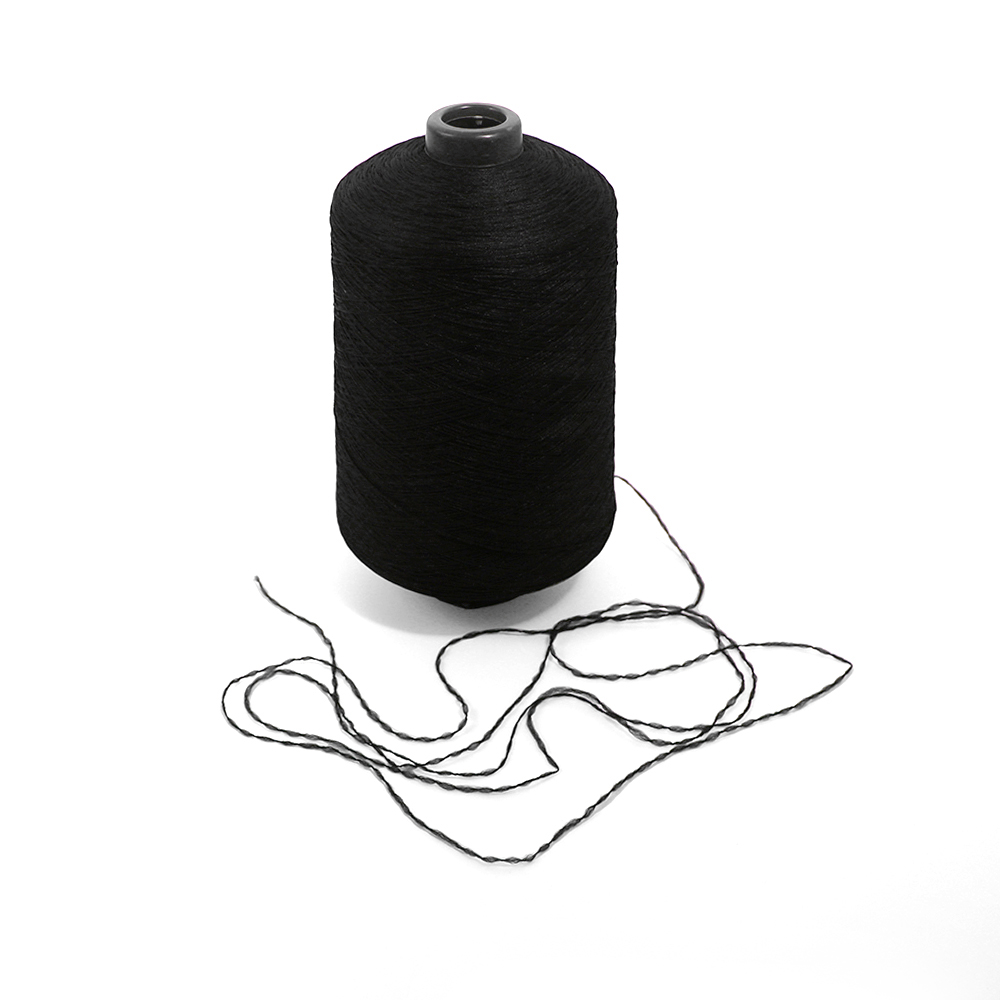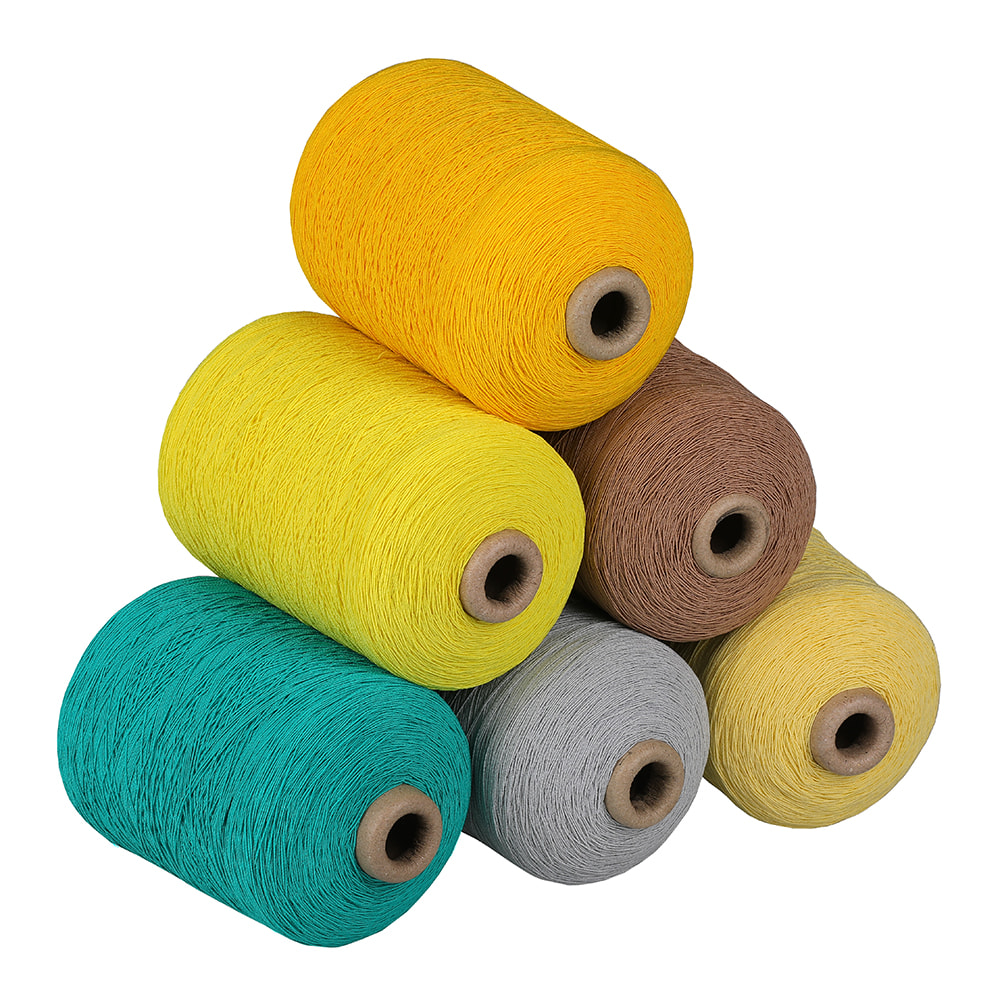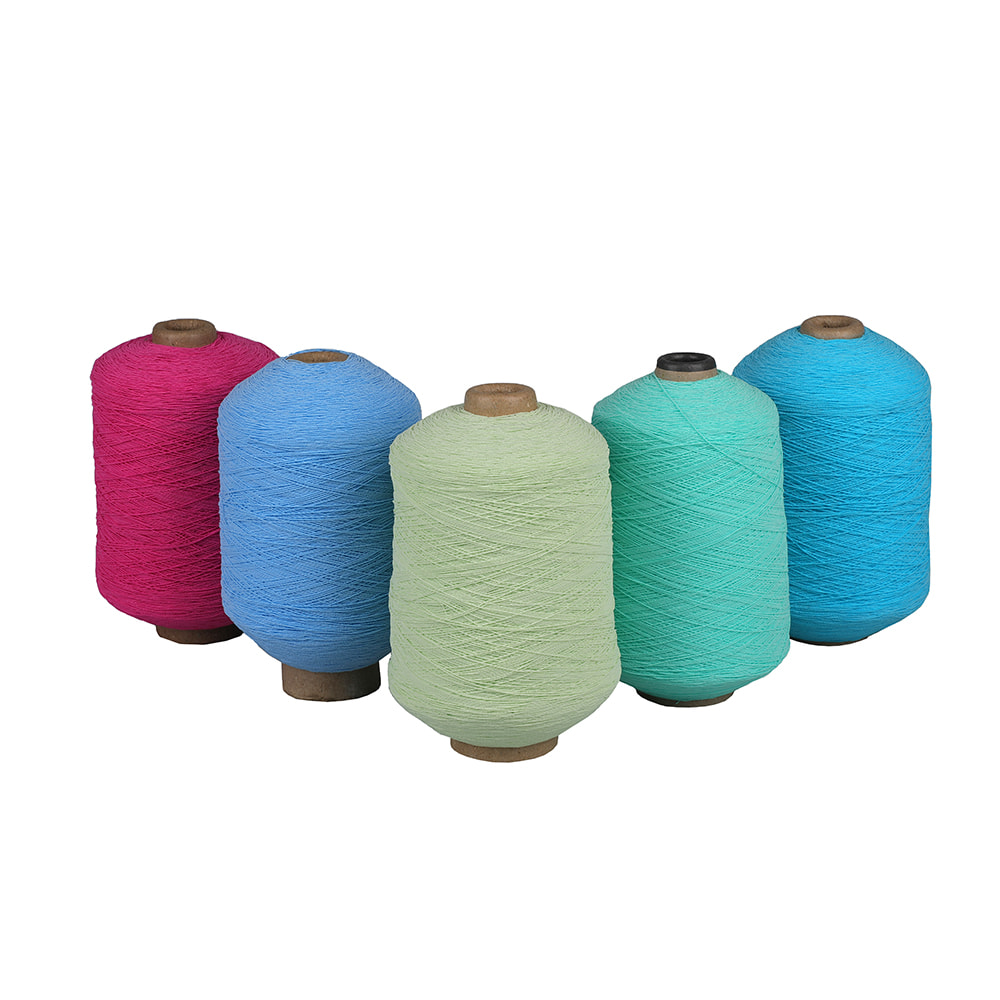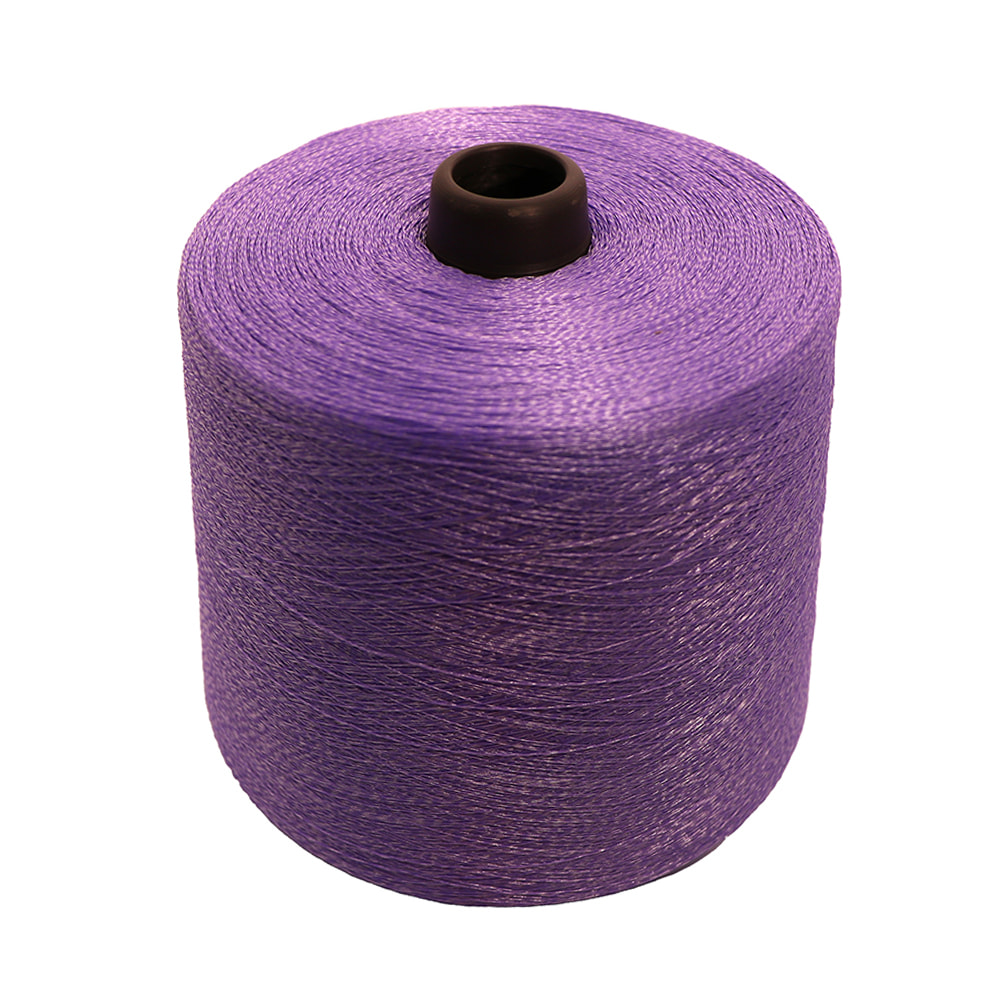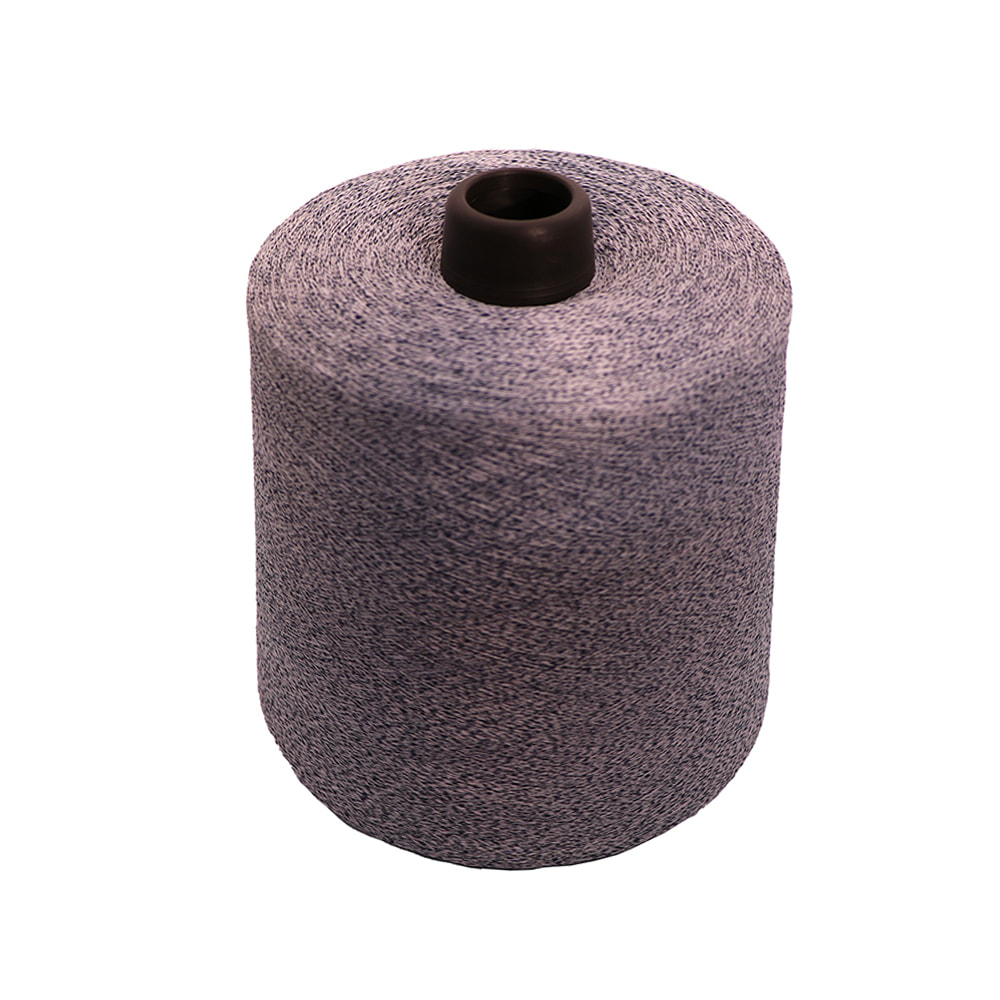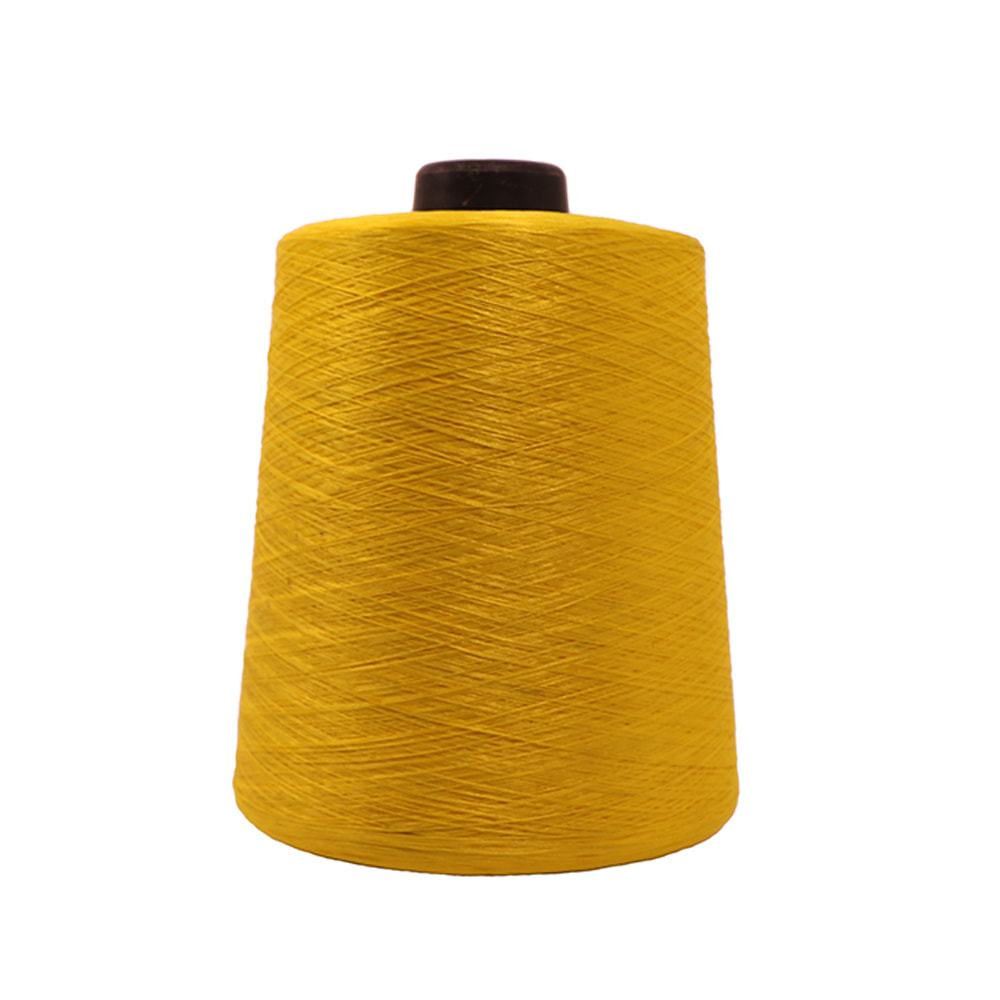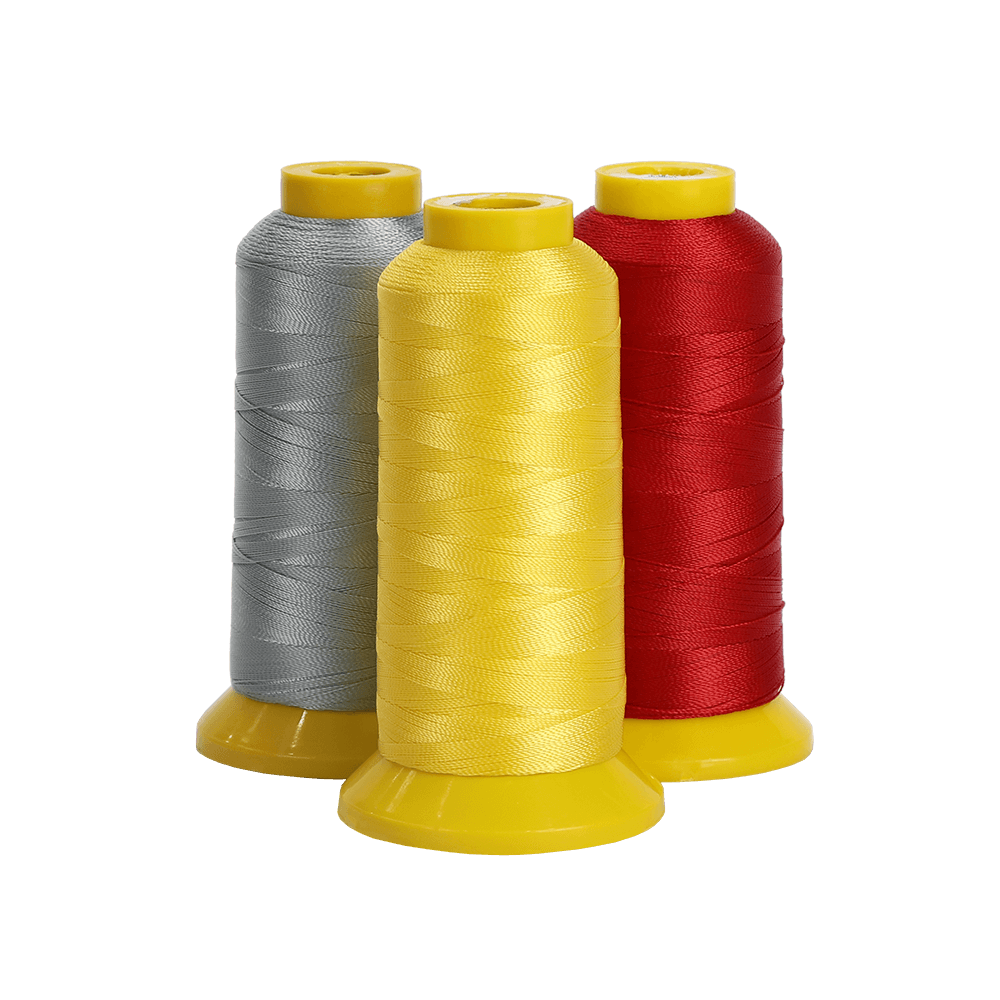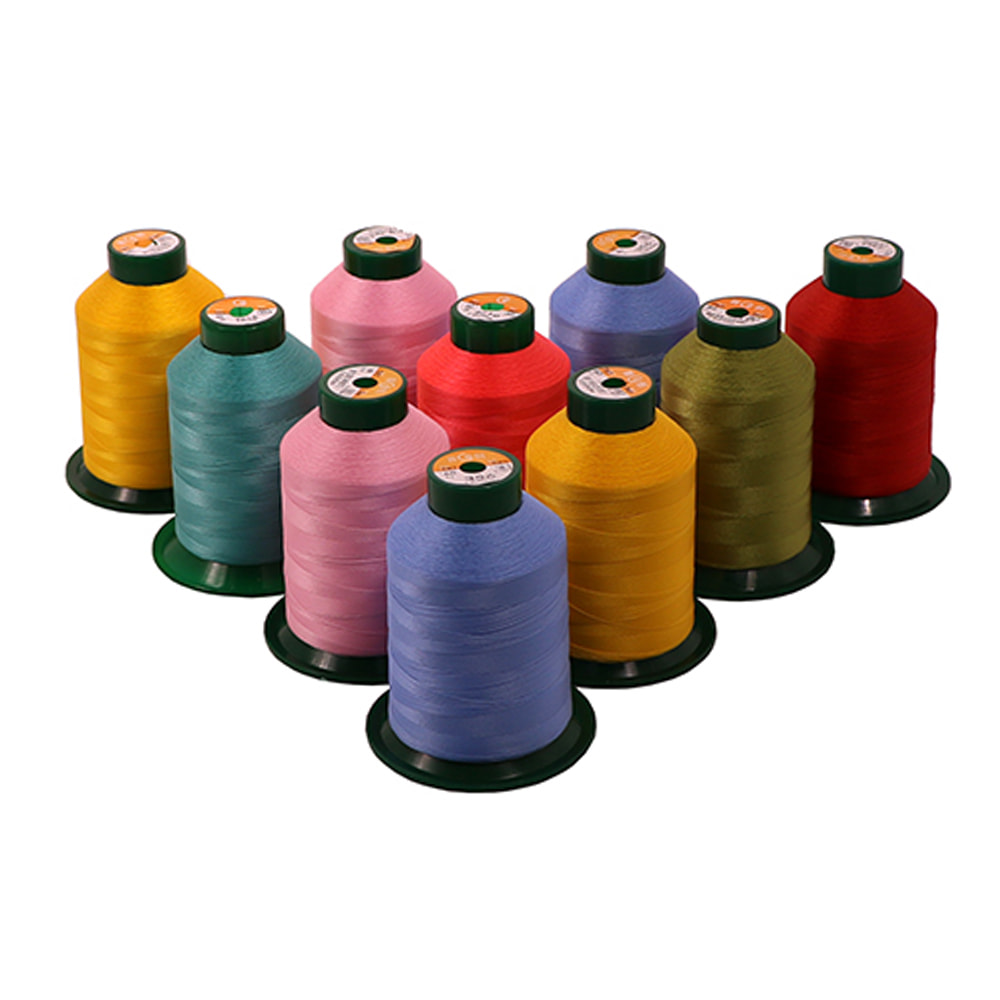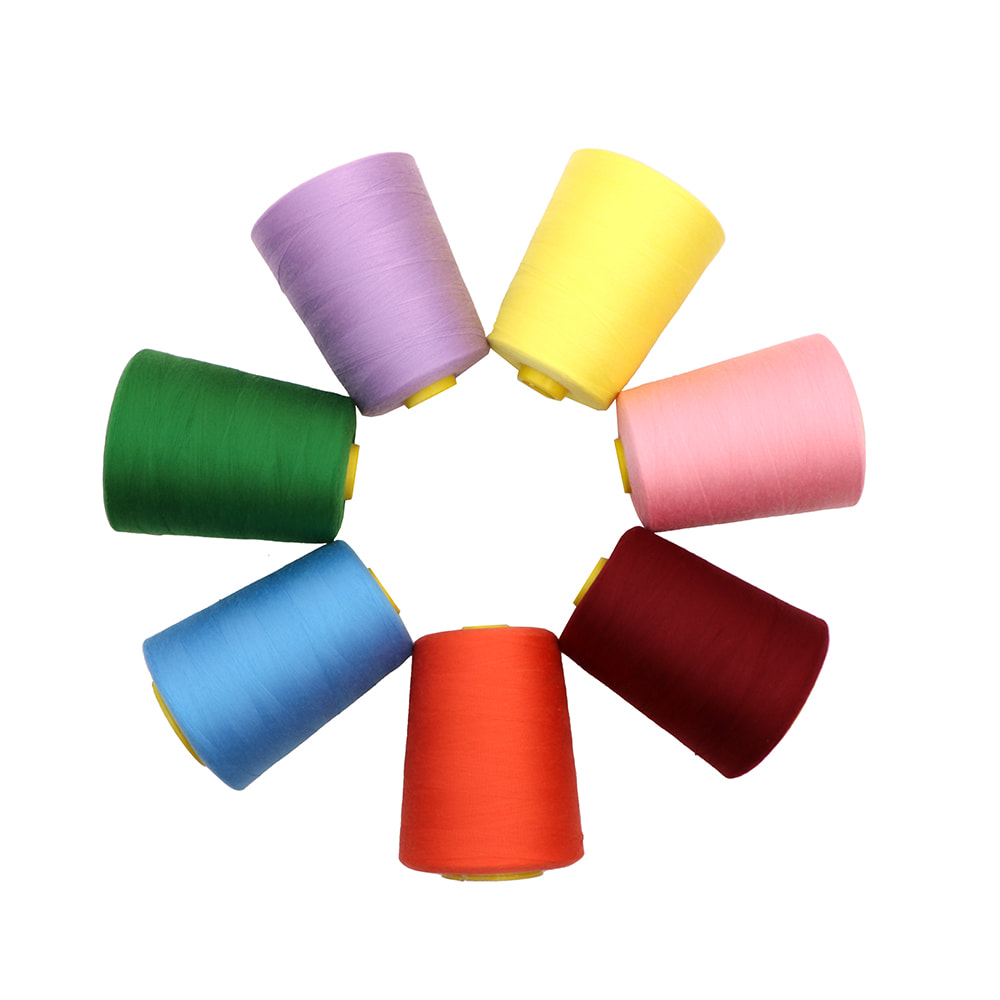Why choose high-strength sewing thread for clothing repairs?
In daily life, common garments—especially denim pants, jackets, or thick cotton items—often experience thread breakage or seam separation at stress points or areas prone to wear. This issue not only diminishes the garment’s appearance but also significantly affects its functionality. Conventional all-purpose sewing threads often fail in high-stress zones, making repairs short-lived. In contrast, using “heavy-duty sewing thread for clothing repair”, specifically designed for demanding situations, can greatly enhance seam strength, effectively preventing tears from daily pulling or abrasion. Such robust thread materials remain intact after multiple wears and washes, substantially extending the lifespan of the garment.
How does cotton-wrapped polyester thread balance softness and strength?
Cotton-wrapped polyester thread features a polyester core wrapped with a layer of cotton, a structural design that combines strength with comfort. The polyester core delivers excellent tensile strength and durability, while the cotton wrapping brings softness and smooth seam feel, reducing irritation to the skin or garment lining. Compared to pure polyester threads, this hybrid construction is more suitable for garments worn close to the body or where comfort matters, while still providing the high strength needed for repairing heavy fabrics—making it an ideal choice that balances practicality and wearability.
Tips for using machine sewing thread with heavy fabrics
When sewing thick materials such as canvas or denim with “machine sewing thread for heavy fabrics,” it’s essential not only to select the right thread but also to adjust the machine settings. First, use a thick needle compatible with the thread diameter (such as a denim needle or heavy-duty needle) to avoid thread breakage or skips. Next, adjust the machine tension by slightly lowering the upper thread tension and moderately increasing presser foot pressure to ensure smooth feed of the thread. Finally, slightly lengthen the stitch length to reduce excessive thread pulling. These combined adjustments ensure the heavy-duty machine sewing thread doesn’t break, delivers full, firm stitches on thick fabrics.
How to choose a sewing thread that won’t break easily?
Selecting a “strong sewing thread that won’t break in clothes” requires multiple considerations. First, understand the thread’s tensile strength; it’s usually indicated by tex or denier, where a lower number means a thicker, higher-load-bearing thread. Second, fiber composition matters: pure polyester is very strong but may be stiff; cotton-wrapped polyester offers flexibility while maintaining strength. The thread’s weave density and surface treatment also affect stitch smoothness and wear resistance. Finally, refer to textile specifications or labels to look for features like “high strength,” “abrasion resistant,” or “suitable for thick fabric seams” to assess whether the thread is reliable for long-term stress-bearing applications.
Why does high tensile strength thread extend seam durability?
High tensile strength sewing thread does not break easily under stress, maintaining seam tension and integrity through repeated wear, bending, friction, and washing without loosening or unravelling. This means the garment’s structure remains intact without seam fatigue or separation. Stronger threads also better resist abrasion and are less likely to fray from fabric fibers. Therefore, “high tensile strength sewing thread for fabric seams” provides not only initial seam stability but also lasting repair effectiveness and garment durability—especially vital for everyday clothing or items made from heavy materials.
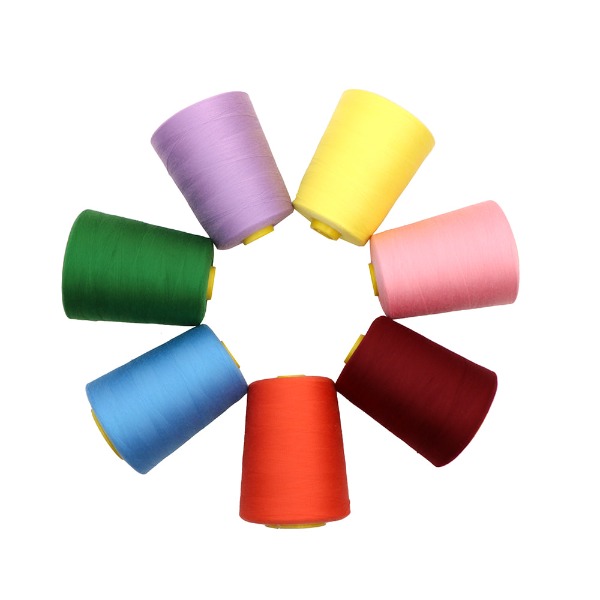

 English
English 中文简体
中文简体 Español
Español